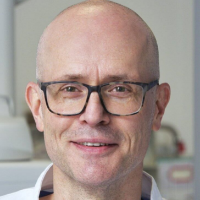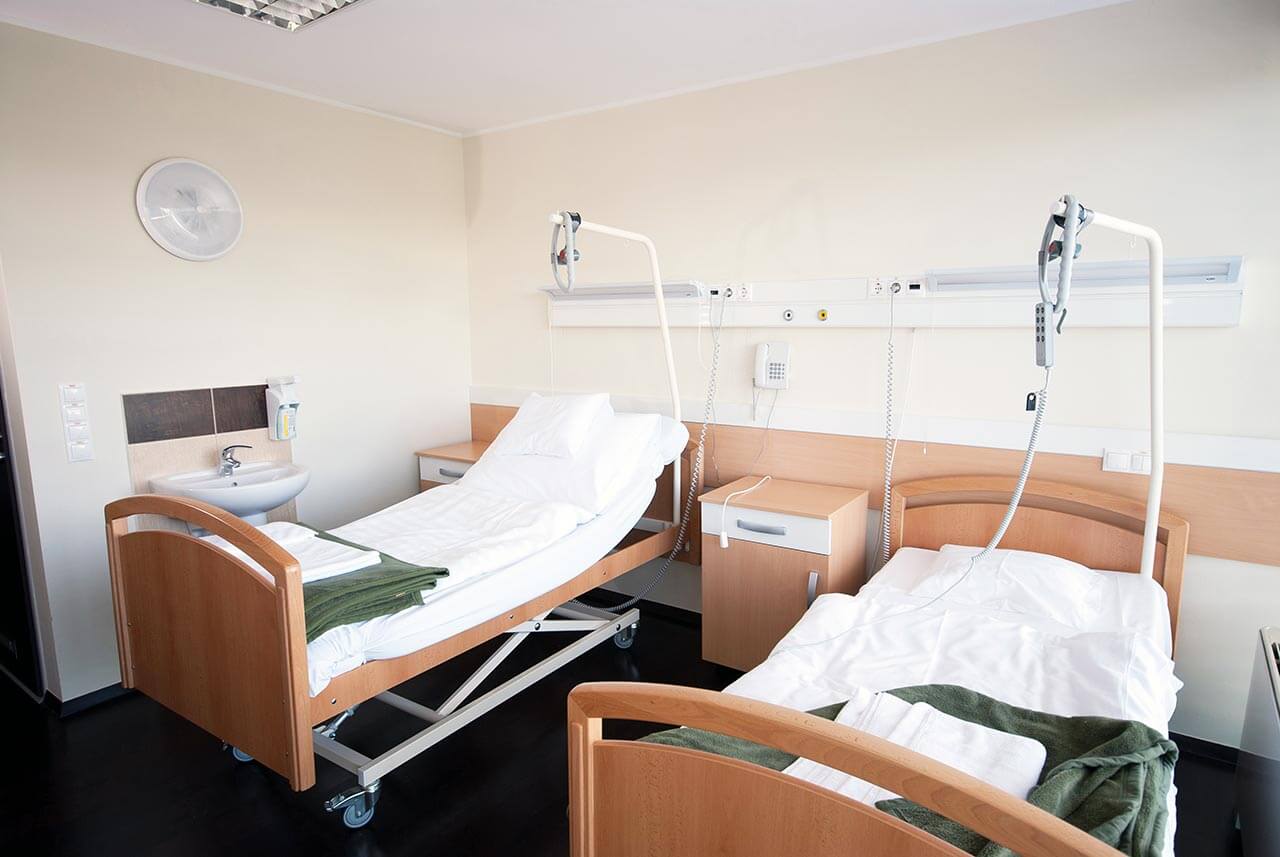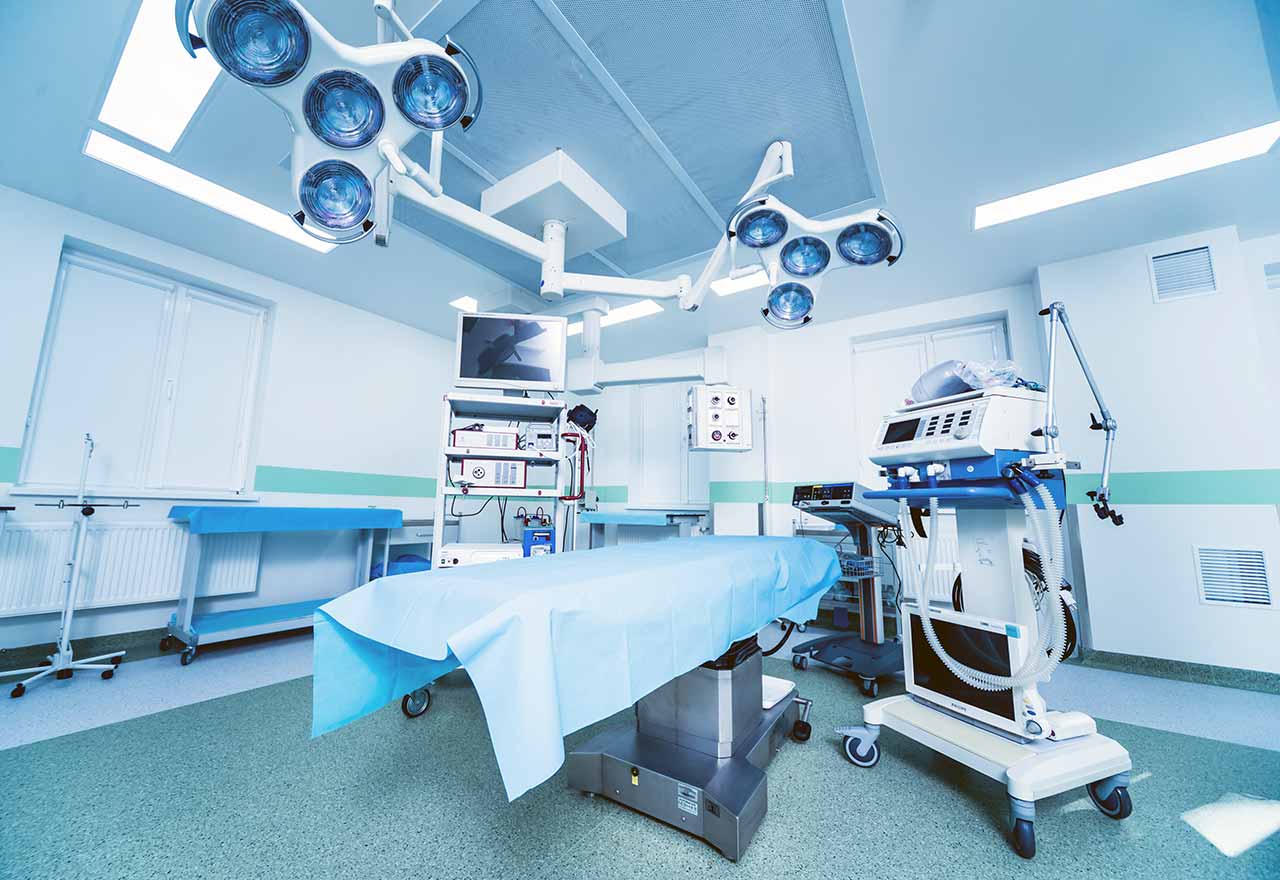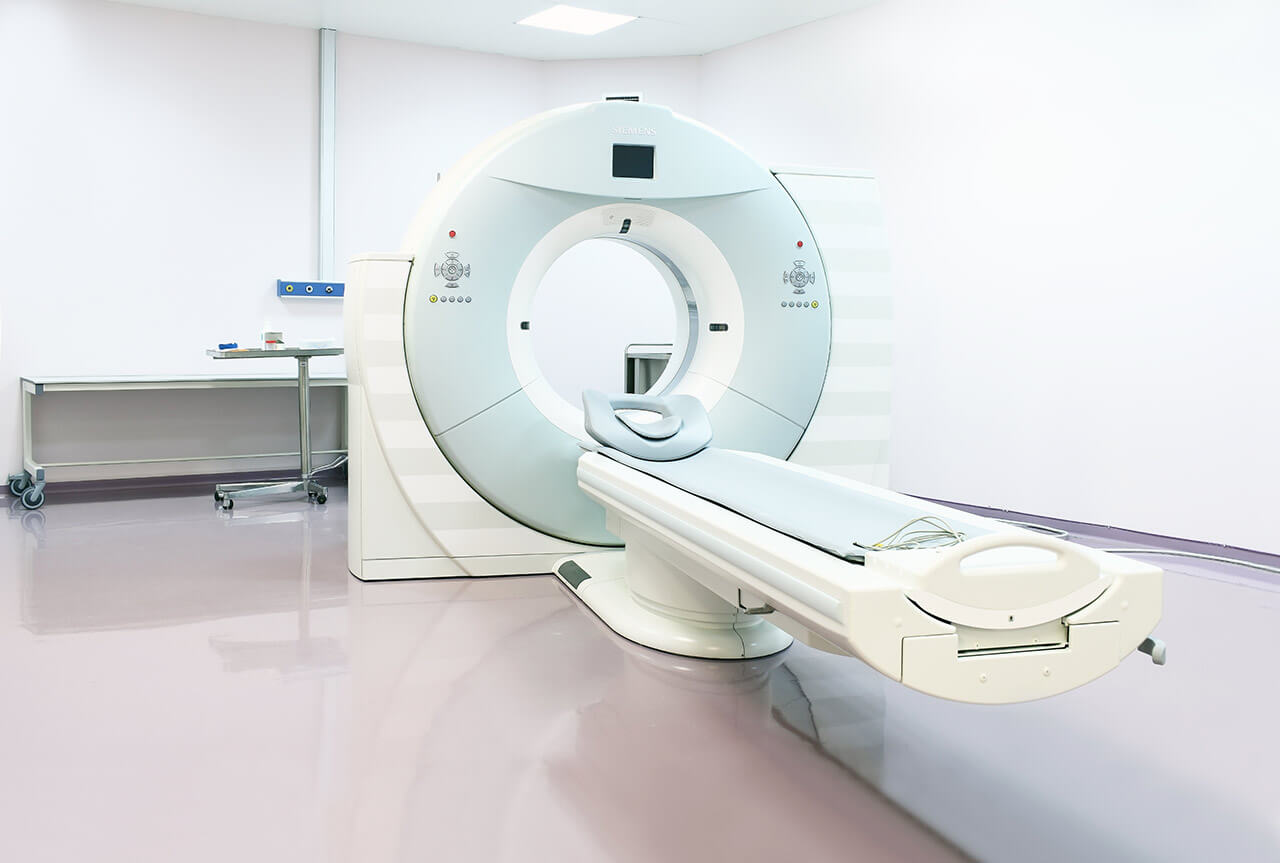
The program includes:
- Initial presentation in the clinic
- clinical history taking
- review of medical records
- physical examination
- laboratory tests:
- complete blood count
- general urine analysis
- biochemical analysis of blood
- inflammation indicators (CRP, ESR)
- indicators blood coagulation
- neurological examination
- functionality x-ray
- CT/MRI scan
- neuropsychological tests (on indications):
- ENMG (electroneuromyography)
- EEG (electroencephalography)
- SEPs (somatosensory evoked potentials)
- VEPs (visually evoked potentials)
- BAEP tests (brainstem auditory evoked potential)
- preoperative care
- treatment of angioma with coiling or radiosurgery
- 1-day intensive care unit stay
- postoperative MRI control
- symptomatic treatment
- control examinations
- the cost of essential medicines and materials
- nursing services
- full hospital accommodation
- developing of further guidance
Required documents
- Medical records
- MRI/CT scan (if available)
- MR/CT-angiography (if available)
Service
You may also book:
 BookingHealth Price from:
BookingHealth Price from:
About the department
The Department of Neuroradiology at the HELIOS University Hospital Wuppertal provides the full range of diagnostic and therapeutic services in the areas of its specialization. The team of the department's doctors deals with the diagnostics and treatment of brain and spinal cord pathologies. The department has at its disposal state-of-the-art medical equipment, including systems for CT, MRI and myelography, thanks to which specialists can comprehensively assess the state of the nervous system, detect pathological processes at the initial stages and provide effective treatment. Among the department's therapeutic options, a special focus is on the interventional treatment of acute stroke – thrombectomy. Another important focus of the specialists' work is the treatment of cerebral vascular malformations, stenosis of the arteries of the brain and spinal cord, and cerebral aneurysms. In addition, the department provides CT-guided interventional pain management to relieve chronic back pain. The department's neuroradiologists cooperate closely with doctors from the related medical specialties: neurologists, neurosurgeons, ophthalmologists, otolaryngologists and radiation therapists. The specialists strive to provide each patient with high quality medical care meeting his needs and wishes. The department is headed by Dr. med. Thorsten Schmidt.
The key area of the department's competence is the urgent treatment of acute stroke with thrombectomy – an interventional procedure to remove a blood clot from a vessel. The purpose of the therapeutic procedure is to restore the patency of the affected area of the artery and normalize blood flow in the brain. Thrombectomy is performed in advanced medical centers with special equipment and qualified doctors. The department's specialists resort to this procedure only in cases when it is impossible to carry out lysis therapy (the procedure of blood clot "dissolution" with medicines) or when it is ineffective. The interventional manipulation is performed under general anesthesia and involves the introduction of a catheter through a puncture of the femoral artery. With the help of imaging devices, the surgeon can clearly see the route of catheter advancement. After the catheter reaches the thrombosed artery in the brain, the surgeon captures the thrombus and mechanically removes it. After the procedure, the patient is constantly monitored by medical personnel and receives the necessary treatment.
The department's doctors also have vast experience in the endovascular treatment of cerebral aneurysms. Previously, the only treatment method for aneurysms was considered open surgery that required craniotomy, but today there is a sparing endovascular method for aneurysm removal. The department's doctors treat cerebral aneurysms using microcoil embolization. This does not require craniotomy, since access to the pathological focus is provided by puncturing the femoral artery. The surgeon inserts a microcatheter into the groin, and then advances it along the bloodstream to the aneurysm. With the microcatheter, platinum microcoils are delivered to the aneurysm, using which the surgeon blocks the blood flow to the aneurysm and eliminates the risk of aneurysm rupture. The intervention involves the use of constant X-ray guidance, and special contrast agents are injected into the human body immediately before the procedure to visualize the vessels. Microcoil embolization practically does not injure healthy tissues, therefore, the patient does not suffer from severe pain and can leave the hospital 2-3 days (with satisfactory results of follow-up examinations) after the surgical intervention.
In its clinical practice, the department often deals with cases of severe back pain that does not respond to classical pharmacotherapy. In such cases, interventional pain management is indicated to the patient, namely periradicular therapy or facet joint infiltration (depending on the cause of chronic back pain). Both procedures are performed under local anesthesia and X-ray guidance to exclude damage to vital spinal structures. During the manipulations, the doctor injects anti-inflammatory and analgesic drugs. Periradicular therapy and facet joint infiltration ensure good results and can be repeated.
The department's range of medical services includes:
- Diagnostics
- Computed tomography
- Magnetic resonance imaging
- Myelography
- CT-guided sampling of brain and spinal cord tissue (biopsy)
- Treatment
- Thrombectomy for the treatment of acute stroke
- Endovascular embolization for cerebral aneurysms
- Interventional repair of arteriovenous malformations
- Interventional treatment of dural arteriovenous fistulas
- Interventional treatment of vertebral and cerebral artery stenosis
- Interventional treatment of intracranial artery stenosis
- Removal of vascular neoplasms in the head and neck: glomus tumors and hemangiomas
- Interventional CT-guided pain management: periradicular therapy and facet joint infiltration
- Other diagnostic and therapeutic options
Curriculum vitae
Higher Education and Professional Career
- Since June 2013 Head Physician of the Department of Neuroradiology at the HELIOS University Hospital Wuppertal.
- May 2012 - April 2013 Acting Head of the Department of Neuroradiology at the University Hospital Giessen and Marburg.
- July 2010 - April 2012 Managing Senior Physician, Department of Neuroradiology at the University Hospital Giessen.
- July 2010 - August 2011 Senior Physician, Department of Neuroradiology, University Hospital Giessen.
- July 2009 - May 2010 Senior Physician, Institute of Diagnostic and Interventional Radiology, HELIOS Clinic Krefeld.
- November 2007 - June 2009 Senior Physician, Department of Neuroradiology, University Hospital RWTH Aachen.
- April 2006 - October 2007 Medical Specialist in Diagnostic Radiology, Neuroradiology, Department of Diagnostic and Interventional Radiology, University Hospital RWTH Aachen.
- January 2000 - March 2006 Physician, Department of Diagnostic and Interventional Radiology, University Hospital RWTH Aachen.
- 1991 - 1999 Study of Human Medicine and graduation thesis defense, University of Bonn.
- 1998 One-year clinical training, University of Cape Town.
- 1993 - 1994 Study of Medicine (4th year), University of Bristol.
Photo of the doctor: (c) Helios Universitätsklinikum Wuppertal
About hospital
According to the prestigious Focus magazine, the HELIOS University Hospital Wuppertal ranks among the top medical facilities in Germany!
The hospital rightfully enjoys the status of the maximum care medical facility and provides its high-quality services in all modern fields of medicine. The hospital operates on the basis of the Witten/Herdecke University, which was opened in 1982 and today is considered one of the best in Germany. Thus, many head physicians of the medical complex are in charge of the corresponding department at the university, which contributes to the close intertwining of research activities and clinical practice. The hospital has long traditions and its own values – the main goal of doctors is to provide comprehensive medical care focused not only on curing the disease, but also on the patient's personal needs.
The hospital has 1,000 beds. The doctors of the medical facility admit more than 50,000 inpatients annually. In addition, more than 100,000 outpatients undergo diagnostic and therapeutic procedures. Such high attendance rates speak for themselves and are undeniable proof of the high-quality medical service of the European level. The medical staff of the hospital has more than 2,500 employees, whose main task is to restore the patient's health and provide him with a decent quality of life.
The hospital has more than 26 specialized departments, as well as many narrowly focused centers and institutes dealing with the treatment of patients suffering from a particular group of diseases: Breast Center, Cancer Center, Cardiology Center, Trauma Center, Spine Center and others. The primary clinical focus of the medical center is cancer treatment.
For more than 25 years, the hospital has been running a special quality management system for medical care, which regulates the aspects of work of the medical staff, compliance with hygiene and safety standards during diagnostics and treatment. Consequently, patients can be sure that their health is in the safe hands of true professionals who work in accordance with the latest medical standards.
Special attention should be paid to the honors of the hospital for excellent patient care. The medical complex has quality certificates from the German Cancer Society (DKG), the German Trauma Society (DGU), the German Cardiac Society (DGK), the German Stroke Society (DSG) and other professional German societies.
Photo: (с) depositphotos
Accommodation in hospital
Patients rooms
The patients of the HELIOS University Hospital Wuppertal live in comfortable single, double, triple and quadruple rooms. Each patient room has an ensuite bathroom with shower and toilet. The standard room furnishings include a comfortable automatically adjustable bed, a bedside table, a wardrobe, a TV and a telephone. The hospital has Wi-Fi (free). For maximum patient comfort, there is a nurse call device on the bedside table. This device allows the patient to control the TV, radio, turn on or off the lights, and adjust the position of the bed.
The patients of the hospital are also offered accommodation in enhanced-comfort rooms. These rooms additionally provide a safe and a free minibar with soft drinks. The enhanced-comfort rooms also have a spacious bathroom with hairdryer, bathrobe, towels and toiletries.
Meals and Menus
The patients of the hospital are offered three meals a day: breakfast, lunch and dinner. The menu offers a variety of delicious dishes to suit all tastes, including dietary and vegetarian options.
The hospital also has a bistro where one can taste delicious hot dishes, cold snacks, desserts, as well as a cup of tea, coffee or refreshments.
The patients staying in enhanced-comfort rooms are offered a separate menu that includes a wider and more refined range of dishes. In addition, fresh fruit, tea, coffee and desserts are delivered to the patient room every day, if desired.
Further details
Standard rooms include:
Religion
The religious services are available upon request.
Accompanying person
During an inpatient program, your accompanying person can stay with you in the patient room or in the hotel of your choice.
Hotel
During an outpatient program, you can stay in the hotel of your choice. Our managers will help you choose the most suitable options.




